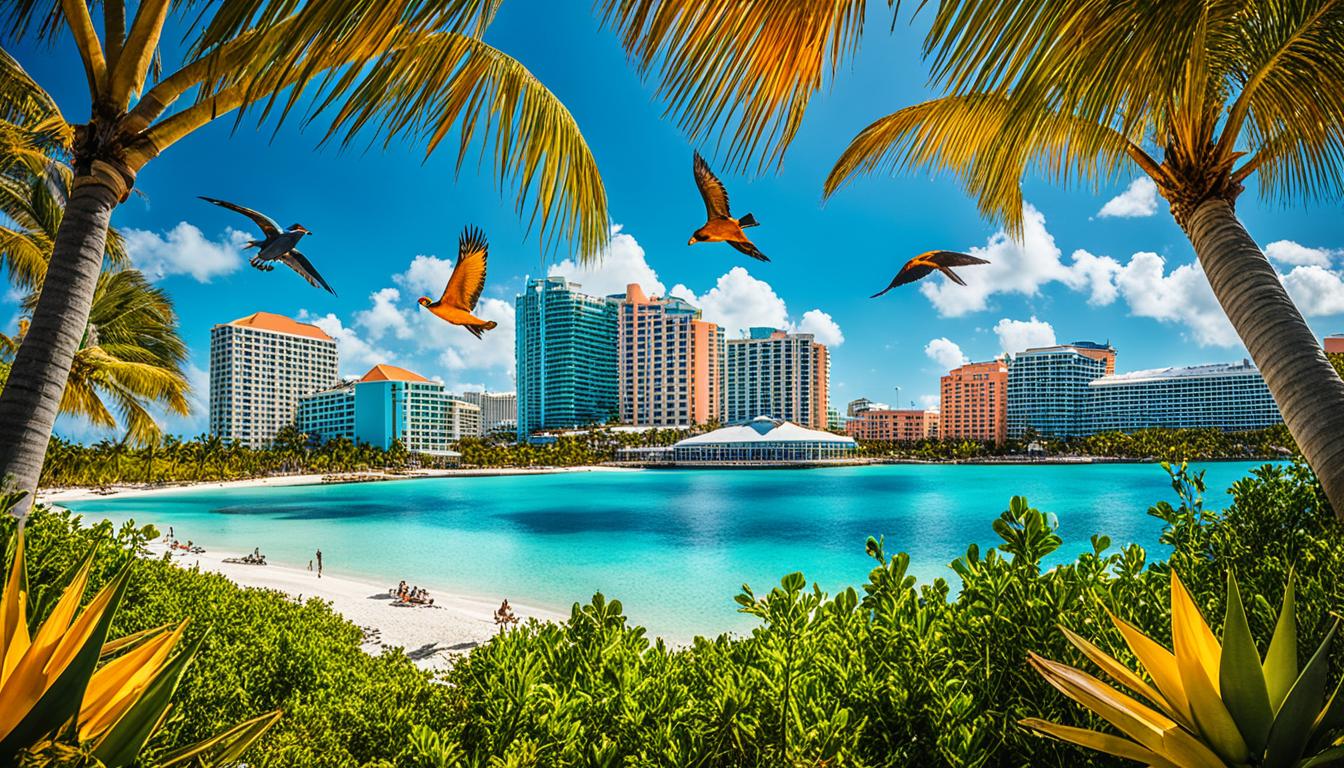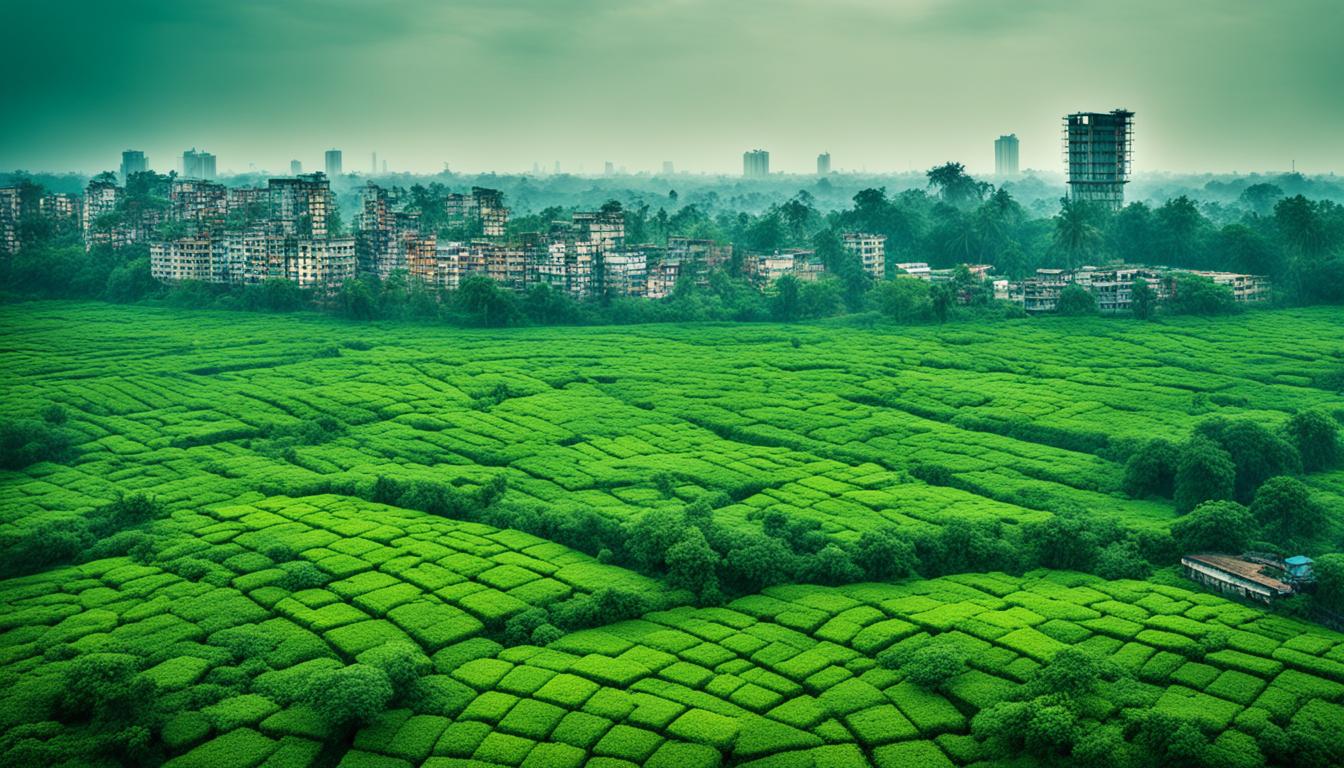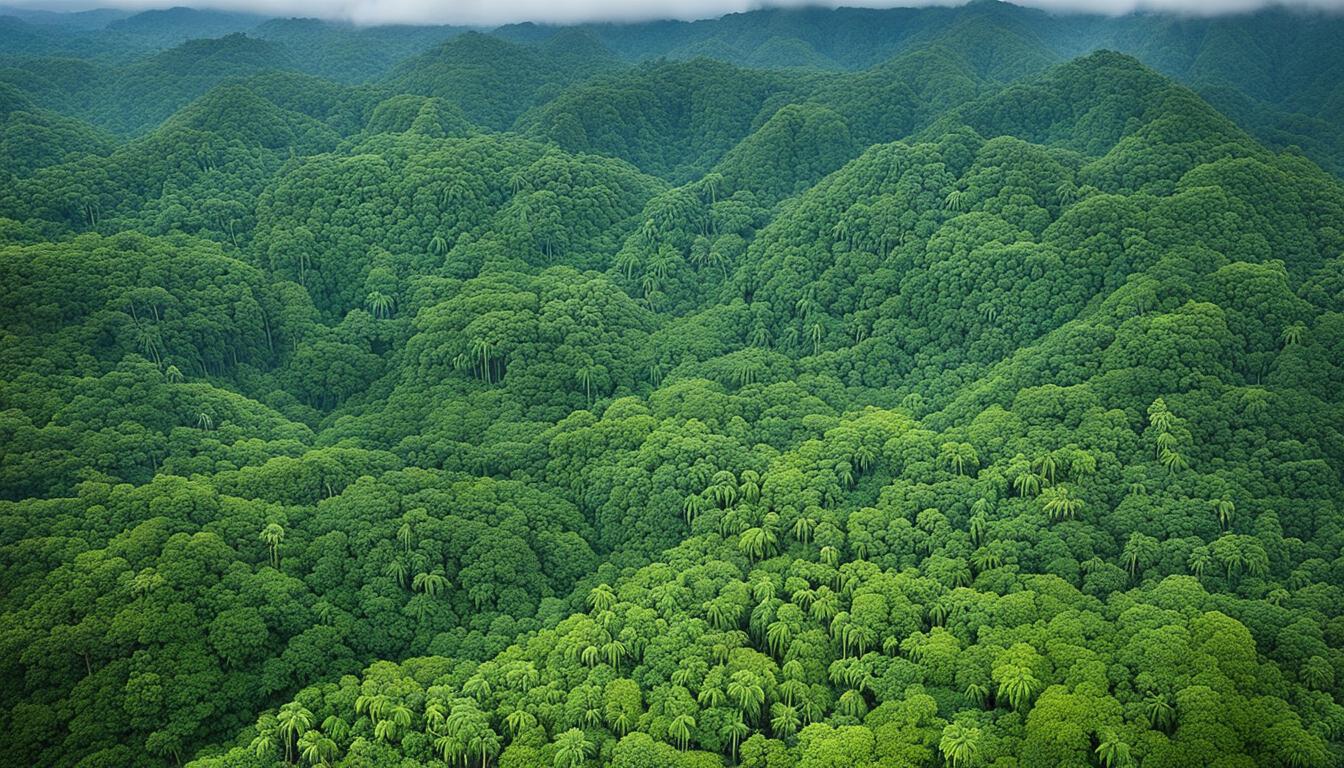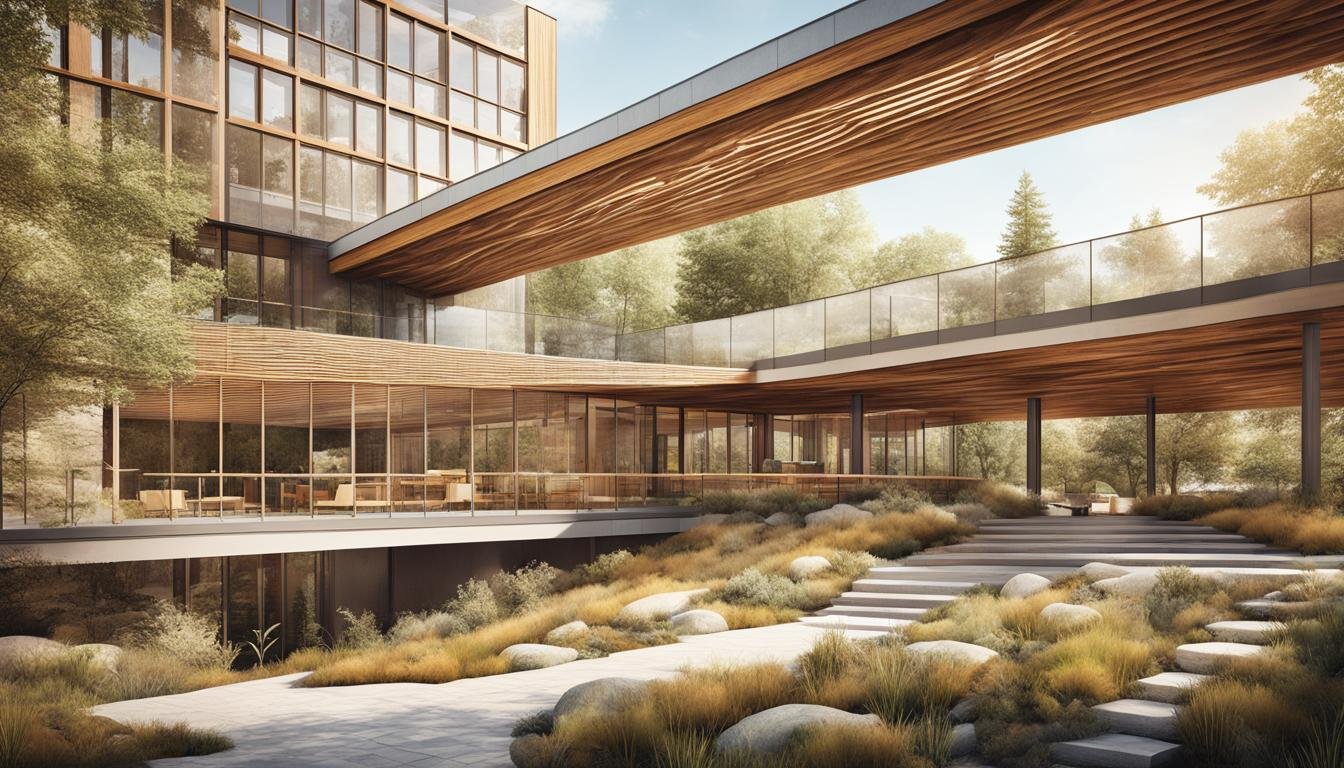Bahrain Biodiversity and the Built Environment
Bahrain, an archipelago off the coast of Saudi Arabia, is blessed with a diverse and unique biodiversity. However, this precious natural heritage is under threat from climate change, rising sea levels, and water scarcity. To ensure the preservation of Bahrain’s natural treasures, efforts are being made to promote environmental conservation, sustainable development, and green building practices.
One of the key aspects of preserving Bahrain’s biodiversity is conducting ecological impact assessments in urban planning frameworks. These assessments help identify and minimize the ecological impact of development projects, ensuring that the construction of buildings and infrastructure is in harmony with the surrounding environment. By implementing green building practices, such as using eco-friendly materials, promoting energy efficiency, and incorporating biodiversity management strategies, Bahrain is taking significant steps towards achieving ecological sustainability.
Key Takeaways:
- Bahrain has a rich biodiversity that is under threat from climate change, rising sea levels, and water scarcity.
- Efforts are being made to protect endangered species and preserve the ecosystem services provided by Bahrain’s biodiversity.
- Ecological impact assessments and green building practices play a crucial role in promoting environmental conservation and sustainable development.
- Bahrain’s urban planning frameworks incorporate biodiversity management strategies to minimize the ecological impact of development projects.
- The preservation of Bahrain’s biodiversity is essential for ecological sustainability and the well-being of its people.
The Unique Animal and Plant Species of Bahrain
Bahrain’s biodiversity is home to a fascinating array of unique animal and plant species. The country boasts a diverse marine environment, including oyster bed habitats and internationally renowned pearls that contribute to its cultural heritage and economic development. Bahrain’s bird population is also remarkable, with over 330 recorded species.
Notably, Bahrain is home to several endangered species, such as the Houbara bustard and the Socotra Cormorant, highlighting the importance of biodiversity conservation efforts. The nation also has wetlands that are protected under the Ramsar Convention, an international treaty for the conservation and sustainable use of wetlands, and one UNESCO natural world heritage site.
These unique species and habitats provide valuable ecosystem services, contributing to the overall balance and well-being of Bahrain’s environment. The conservation of these biodiversity hotspots is essential for ensuring the long-term sustainability of marine resources, supporting the bird population, and preserving the ecological richness of wetlands.
By prioritizing biodiversity conservation, Bahrain acknowledges the importance of protecting its precious natural heritage and upholding international agreements for a sustainable future.
| Species | Status | Habitat |
|---|---|---|
| Houbara bustard | Endangered | Desert and semi-arid regions |
| Socotra Cormorant | Endangered | Coastal areas and islands |
| Pearl Oyster | N/A | Marine and coastal waters |
| Great Crested Grebe | Least Concern | Inland water bodies |
The Importance of Bahrain’s Biodiversity
Bahrain’s biodiversity is of utmost importance to the country’s economic development and cultural heritage. The marine resources, including oyster beds and coral reefs, not only support local livelihoods but also contribute significantly to the nation’s economy.
Furthermore, Bahrain’s biodiversity plays a crucial role in maintaining environmental balance and providing essential ecosystem services. Wetlands, for instance, serve as natural regulators by controlling water flow, filtering pollutants, and providing a habitat for migratory species.
Preserving biodiversity is integral to achieving sustainable development and ensuring the long-term viability of natural resources. By protecting and conserving its diverse range of flora and fauna, Bahrain can continue to reap the economic benefits and cultural richness associated with its unique natural heritage.
“Bahrain’s biodiversity is a precious asset that must be safeguarded for the benefit of current and future generations.” – Environmentalist
Economic Development and Marine Resources
The marine resources found in Bahrain, such as oyster beds and coral reefs, contribute significantly to the nation’s economic development. The oyster industry, in particular, has played a crucial role in the country’s history and continues to provide valuable opportunities for local communities.
Marine resources like pearls and fish are key drivers of economic growth, supporting industries such as jewelry making and fishing. By preserving these resources, Bahrain can ensure sustainable economic development and long-term prosperity.
Ecosystem Services and Environmental Balance
Bahrain’s biodiversity also plays a vital role in maintaining environmental balance and providing essential ecosystem services. Wetlands, for example, offer multiple benefits to both humans and nature. They serve as natural water filters, helping to improve water quality, and provide a habitat for diverse plant and animal species.
Maintaining the environmental balance through the preservation of wetlands, forests, and other natural areas is essential for climate regulation, water resource management, and overall ecological stability.
Cultural Heritage and Sustainable Development
Bahrain’s rich biodiversity is deeply intertwined with the nation’s cultural heritage, preserving traditional practices and providing inspiration for art, literature, and cultural expressions. It is the responsibility of the community to protect and celebrate this unique cultural heritage.
Sustainable development, with a strong focus on biodiversity conservation, ensures the preservation of Bahrain’s cultural identity and the promotion of a harmonious relationship between people and nature.
| Economic Development | Ecosystem Services | Cultural Heritage |
|---|---|---|
| Contributes to the nation’s economy | Maintains environmental balance | Preserves cultural identity |
| Supports industries like jewelry making and fishing | Regulates climate and water resources | Inspires art, literature, and cultural expressions |
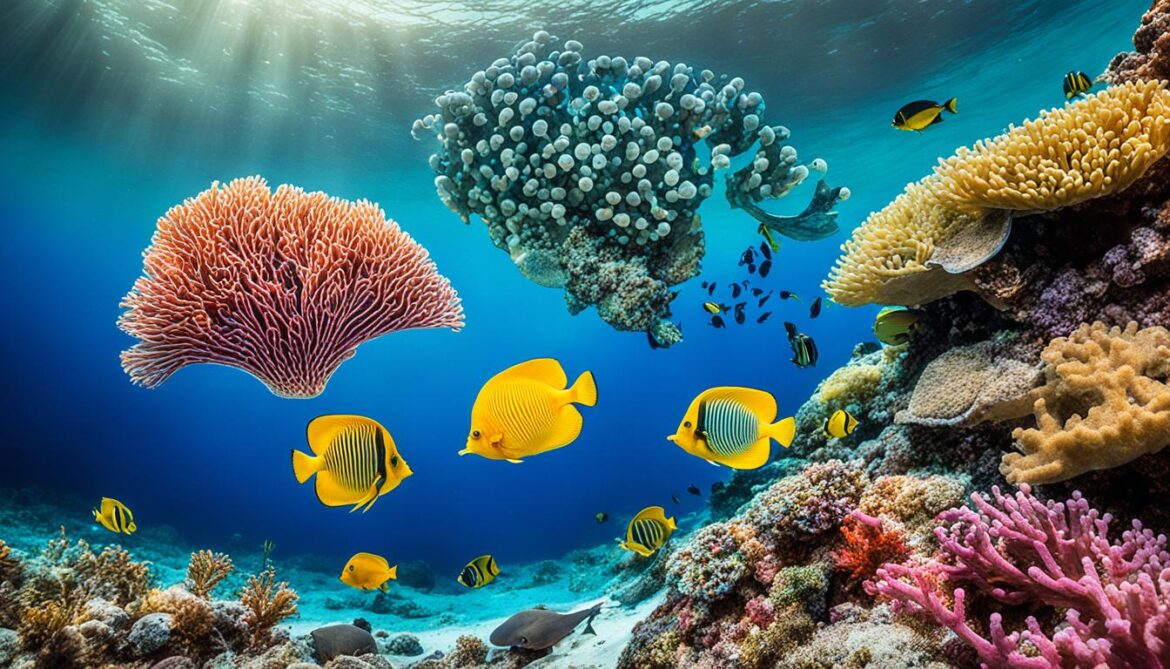
Threats to Bahrain’s Biodiversity
Bahrain’s biodiversity faces numerous threats that endanger the delicate balance of its ecosystems and the existence of its unique species. The following factors pose significant risks to Bahrain’s biodiversity:
- Climate Change: The effects of climate change, including increasing temperatures and changing rainfall patterns, can disrupt the habitats and lifecycles of many species.
- Rising Sea Levels: As sea levels rise, coastal areas and valuable habitats are at risk of submergence and erosion, leading to the loss of crucial biodiversity.
- Water Scarcity: Bahrain’s arid climate and limited freshwater resources make water scarcity a pressing concern for both humans and the natural environment, potentially leading to habitat degradation and loss.
- Coastal Erosion: The combined effects of rising sea levels and human activities can accelerate coastal erosion, leading to habitat destruction and a loss of biodiversity.
- Habitat Loss: Urbanization, industrial development, and land conversion pose a threat to natural habitats, resulting in the loss of plant and animal species.
- Pollution: Industrial and oil pollution, along with other sources of contamination, can degrade ecosystems, harm species, and disrupt ecological processes.
- Invasive Species: The introduction of invasive species can destabilize ecosystems, outcompete native species for resources, and disrupt ecological balance.
Protecting Bahrain’s biodiversity requires immediate and concerted efforts to mitigate these threats and safeguard the diverse range of species and habitats. By addressing climate change, promoting sustainable water management, implementing coastal protection measures, preserving habitats, and controlling pollution and invasive species, Bahrain can work towards preserving its unique natural heritage.
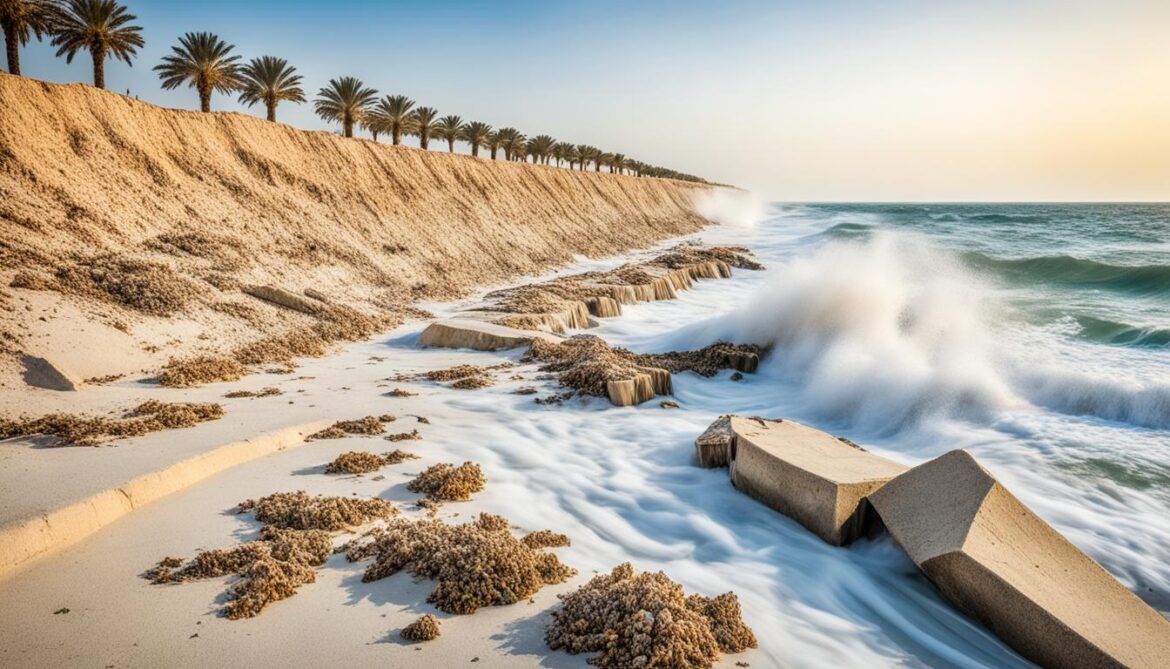
Conservation Efforts in Bahrain
The Bahraini government is dedicated to safeguarding the nation’s rich biodiversity through various conservation efforts. Central to these efforts is the implementation of the National Biodiversity Strategy and Action Plan (NBSAP), which focuses on enhancing livelihoods, protecting ecosystems, and ensuring food security.
Bahrain has established marine protected areas, which play a vital role in preserving the marine ecosystem and the diverse species within it. These protected areas serve as sanctuaries for marine life, safeguarding their habitats and contributing to the overall conservation of biodiversity.
Furthermore, Bahrain has developed a comprehensive biodiversity database, known as the Clearing House Mechanism. This database serves as a valuable resource for information exchange, facilitating collaboration among stakeholders and supporting evidence-based decision-making.
Bahrain actively engages in south-south cooperation, collaborating with other developing nations to exchange knowledge, expertise, and best practices in biodiversity conservation. Through partnerships and knowledge-sharing, Bahrain seeks to enhance its conservation efforts and promote sustainable development.
Bahrain’s Conservation Efforts
| Conservation Initiatives | Description |
|---|---|
| National Biodiversity Strategy and Action Plan | An integrated plan to conserve biodiversity, improve livelihoods, protect ecosystems, and ensure food security. |
| Marine Protected Areas | Dedicated areas in the marine environment that provide sanctuary for marine life and preserve critical habitats. |
| Clearing House Mechanism | A comprehensive biodiversity database facilitating information exchange and collaboration among stakeholders. |
| South-South Cooperation | Engagement with other developing nations to share knowledge, expertise, and best practices in biodiversity conservation. |
“Our conservation efforts in Bahrain are focused on protecting our unique biodiversity, promoting sustainable development, and securing a better future for generations to come.”
Exploring the History of Green Building in Bahrain
Bahrain has a rich history of sustainable practices, with green building and eco-friendly architecture playing a significant role in the nation’s development. From the early days of pearl diving, which contributed substantially to the national economy, to the present-day focus on sustainable development, Bahrain has embraced environmentally responsible construction practices.
The government of Bahrain has taken notable initiatives to promote green building and sustainable development. These efforts reflect the country’s commitment to preserving the environment and creating a sustainable future. Green infrastructure projects, such as energy-efficient buildings, have become prominent features of Bahrain’s urban landscape, setting an example for other countries in the region.
“Bahrain’s rich history of sustainable practices, coupled with its commitment to green building and eco-friendly architecture, make it a model for sustainable development in the region.”
Green building in Bahrain encompasses various construction practices that prioritize environmental conservation and reduce the ecological footprint of buildings. By implementing energy-efficient systems, utilizing eco-friendly materials, and integrating renewable energy sources, Bahrain is paving the way for sustainable development.
Key Features of Green Building in Bahrain:
- Prioritizing energy efficiency to reduce carbon emissions and promote a low-carbon future
- Optimizing resource usage, such as water and electricity, to minimize waste and enhance sustainability
- Utilizing sustainable materials that are non-toxic, recyclable, and sourced responsibly
- Incorporating renewable energy sources, such as solar and wind power, to reduce reliance on fossil fuels
- Designing buildings that enhance indoor air quality and occupant well-being
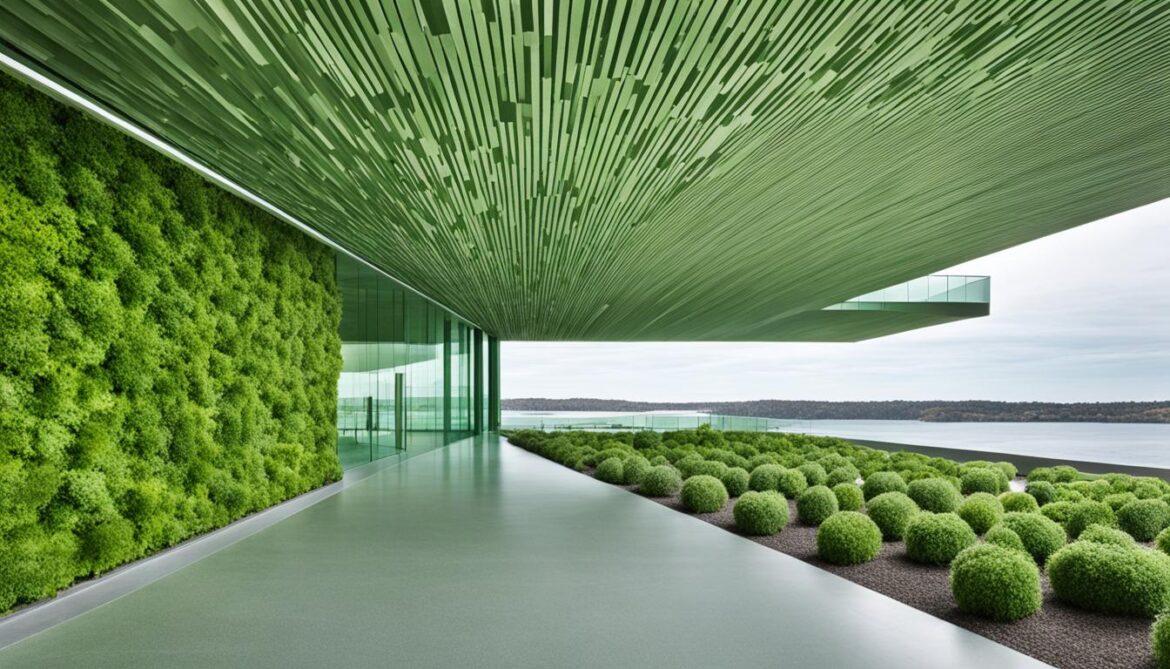
Green building practices not only contribute to the environmental preservation of Bahrain but also offer significant economic and social benefits. Energy-efficient buildings save costs in the long run through reduced energy consumption and operational expenses. Additionally, green buildings create healthier and more productive indoor environments, benefiting the well-being of occupants.
Bahrain’s commitment to green building and sustainable development sets an inspiring example for other nations. By integrating eco-friendly architecture and construction practices into urban design, Bahrain is leading the way towards a greener and more sustainable future.
Explore Bahrain Green Building: Your Guide to Sustainable Living
In Bahrain, sustainable living is being actively promoted through the implementation of green building practices. Green buildings are specifically designed to prioritize energy efficiency, environmental responsibility, and the well-being of occupants. This commitment to sustainability is reflected in the use of renewable energy, eco-friendly materials, and green design principles in Bahrain’s construction industry.
Green buildings in Bahrain are at the forefront of the nation’s environmental conservation and sustainable development efforts. These buildings utilize renewable energy sources such as solar power, harnessing the abundant sunlight that Bahrain enjoys throughout the year. By incorporating energy-efficient technologies and designs, green buildings minimize their carbon footprint and reduce dependence on non-renewable energy sources.
One of the key features of green buildings in Bahrain is the use of eco-friendly materials. These materials are carefully selected to minimize environmental impact, considering factors such as resource depletion, emission levels, and waste reduction. By choosing sustainable materials, such as recycled or locally sourced materials, the construction industry in Bahrain contributes to the preservation of natural resources and reduces the overall ecological footprint.
The principles of green design are integral to the construction of sustainable buildings in Bahrain. These design elements prioritize efficient use of resources, optimal space utilization, and consideration of the building’s impact on the surrounding environment. Green design also emphasizes the well-being of occupants by creating healthy indoor environments with improved air quality, natural lighting, and ergonomic features.
The efforts of Bahrain in promoting sustainable living through green building practices have garnered international attention. The nation’s commitment to environmental conservation and the adoption of eco-friendly construction methods are commendable. By setting an example for other countries, Bahrain is becoming a model for sustainable living and inspiring global efforts towards a greener future.
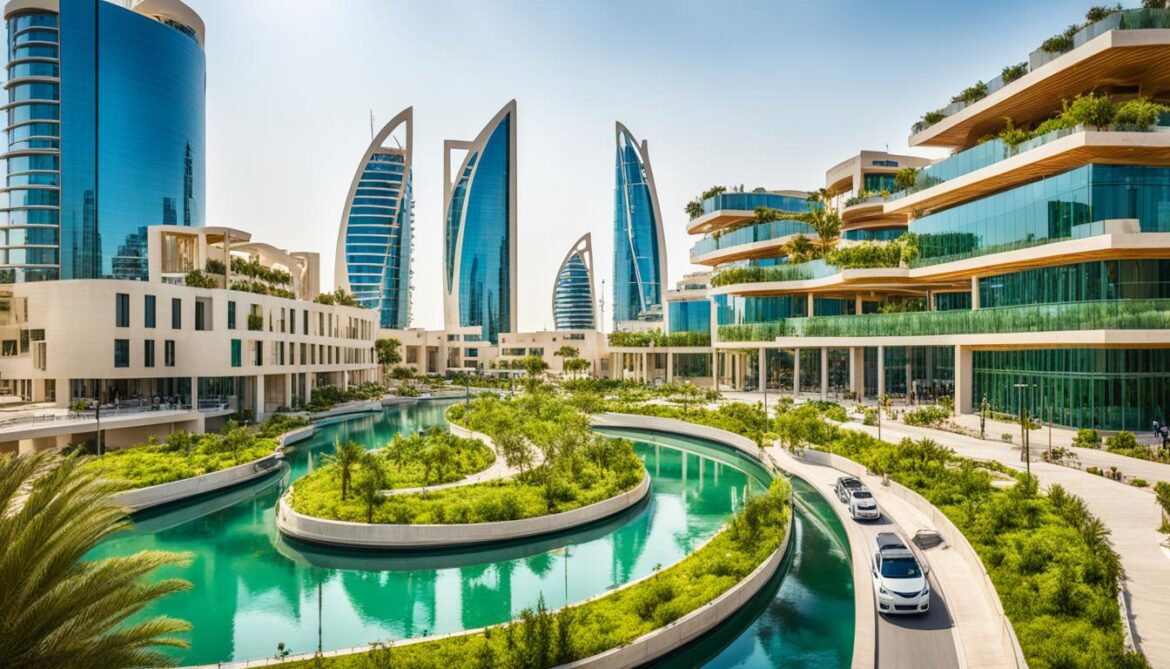
Boosting South-South Cooperation
Bahrain recognizes the importance of south-south cooperation in conservation efforts. The country has received support and expertise from other developing nations through training programs and capacity building initiatives. This collaborative approach allows Bahrain to learn from the experiences of others facing similar challenges in biodiversity conservation. By promoting knowledge exchange and skill development, south-south cooperation enhances Bahrain’s capacity to protect and manage its diverse ecosystems.
Training Programs and Capacity Building
In order to strengthen its conservation efforts, Bahrain actively engages in training programs and capacity building initiatives supported by other developing nations. These programs provide valuable knowledge and skills in biodiversity management, ecosystem restoration, and sustainable practices. Through workshops, seminars, and field experiences, Bahrain’s environmental professionals and stakeholders gain the expertise necessary to implement effective conservation strategies and initiatives.
Financial Assistance from the Global Environment Facility
Financial assistance plays a vital role in enabling Bahrain to implement its conservation initiatives. The Global Environment Facility (GEF), an international financial institution, offers grants and funding to support projects aimed at addressing global environmental challenges. Bahrain has identified the GEF as a key funding source for its biodiversity conservation projects. This financial assistance helps Bahrain invest in the necessary resources, infrastructure, and technologies to protect and restore its unique biodiversity.
The collaboration between Bahrain and other developing nations through south-south cooperation creates a strong network of support and knowledge sharing. This partnership enhances Bahrain’s conservation efforts and ensures the sustainable management of its biodiversity.
| Benefits of South-South Cooperation | Examples |
|---|---|
| Knowledge exchange | Sharing best practices in biodiversity conservation |
| Technical expertise | Training programs and capacity building initiatives |
| Financial support | Global Environment Facility grants and funding |
| Collaborative research | Joint projects and scientific studies |
Conservation Efforts in Bahrain
Bahrain is dedicated to the conservation of its biodiversity and has implemented various efforts to achieve this goal. These initiatives are guided by the National Environment Strategy, a comprehensive plan that incorporates biodiversity conservation into Bahrain’s environmental agenda. Supported by a robust legislative framework, Bahrain’s conservation efforts prioritize the establishment of protected areas, captive breeding programs, public education, and the allocation of financial resources for biodiversity management and preservation.
Central to Bahrain’s conservation strategy is the creation of protected areas, which serve as sanctuaries for its diverse flora and fauna. These areas are carefully managed to maintain the ecological balance and safeguard vulnerable species and habitats. By establishing protected areas, Bahrain demonstrates its commitment to ensuring the long-term survival of its unique biodiversity.
In addition to protected areas, Bahrain has also implemented captive breeding programs to bolster the populations of endangered species. These programs aim to increase the numbers of vulnerable species and reintroduce them into their natural habitats. By breeding and reintroducing endangered species, Bahrain actively contributes to their conservation and helps preserve the delicate balance of its ecosystems.
Recognizing the importance of public awareness and education, Bahrain has also invested in initiatives to inform and engage the public in biodiversity conservation. These efforts aim to raise awareness about the value of biodiversity and the need for its protection. By promoting public education, Bahrain encourages individuals to take an active role in preserving the nation’s natural heritage.
Financial resources play a crucial role in supporting Bahrain’s conservation efforts. To ensure the effective management and preservation of biodiversity, the government allocates adequate funding to key conservation projects. This financial commitment highlights Bahrain’s dedication to upholding its environmental responsibilities and securing a sustainable future for its unique biodiversity.
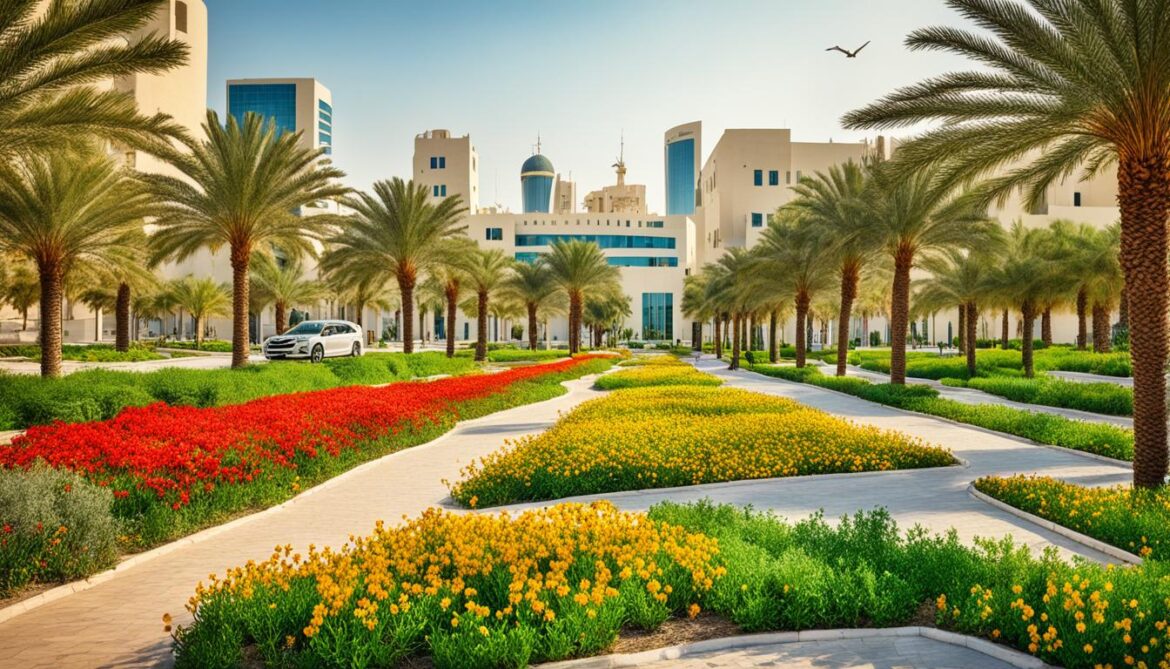
Conservation Efforts in Bahrain – Snapshot
| Conservation Efforts | Description |
|---|---|
| Protected Areas | Bahrain has established protected areas to preserve vulnerable species and habitats. These areas serve as sanctuaries for biodiversity. |
| Captive Breeding Programs | Bahrain implements captive breeding programs to increase the populations of endangered species and reintroduce them into their natural environments. |
| Public Education | Efforts are made to raise public awareness about the value of biodiversity and the need for its conservation. Public engagement is encouraged to foster a sense of responsibility towards the environment. |
| Financial Resources | Bahrain allocates sufficient financial resources to support the management and preservation of biodiversity. Adequate funding ensures the effectiveness of conservation projects. |
Current Status of National Biodiversity Strategies and Action Plans
Bahrain is currently in the process of developing a comprehensive plan to manage and conserve biodiversity, known as the National Biodiversity Strategy and Action Plan (NBSAP). Although the nation does not currently have an NBSAP in place, efforts are underway to implement this crucial framework for biodiversity management.
The implementation of an NBSAP will play a pivotal role in enhancing Bahrain’s ability to protect and sustainably manage its diverse range of species and ecosystems. This strategic plan will provide a roadmap for conservation efforts and guide policymakers in making informed decisions to safeguard Bahrain’s natural heritage.
One of the key focuses of the NBSAP will be on improving biodiversity information and monitoring systems. Accurate and up-to-date information is essential for effective biodiversity management, as it enables policymakers to identify areas of concern, track population trends, and measure the success of conservation initiatives. By enhancing biodiversity information and monitoring, Bahrain will be better equipped to develop targeted strategies and prioritize conservation actions.
“Implementing a National Biodiversity Strategy and Action Plan is crucial for Bahrain to effectively manage and conserve its rich biodiversity. By developing a comprehensive plan and improving biodiversity information, Bahrain will be able to make informed decisions and take proactive steps towards sustainability.”
It is worth noting that the development and implementation of the NBSAP require a collaborative effort involving multiple stakeholders, including government agencies, research institutions, non-governmental organizations, and local communities. By involving a diverse range of actors, Bahrain can ensure that the NBSAP reflects the needs and aspirations of all stakeholders, leading to more effective and inclusive biodiversity management strategies.
Biodiversity Goals and Targets and the Contribution to the Implementation of CBD
Bahrain recognizes the importance of biodiversity conservation and sustainable development. The nation’s biodiversity goals align with the objectives of the Convention on Biological Diversity (CBD), an international agreement aimed at promoting the conservation and sustainable use of biodiversity.
To achieve its biodiversity goals, Bahrain has implemented strategies and action plans that prioritize the protection and preservation of its unique biodiversity. These efforts contribute to global initiatives in biodiversity conservation and help create a sustainable future for generations to come.
The CBD provides a framework for Bahrain to guide its biodiversity conservation efforts. By aligning with the CBD, Bahrain can ensure that its strategies and actions are in line with international standards and best practices in conservation. This collaboration also allows Bahrain to share experiences and knowledge with other countries, fostering a global network for biodiversity conservation.
Through the implementation of biodiversity strategies and action plans, Bahrain focuses on promoting sustainable development alongside the conservation of its unique biodiversity. This approach ensures that economic growth goes hand in hand with environmental protection, creating a balance that benefits both people and nature.
The commitment to biodiversity conservation and sustainable development is a testament to Bahrain’s dedication to preserving its natural heritage for future generations. By adhering to the CBD’s goals and targets, Bahrain aims to contribute to a global effort that values and protects biodiversity, ensuring a sustainable future for all.
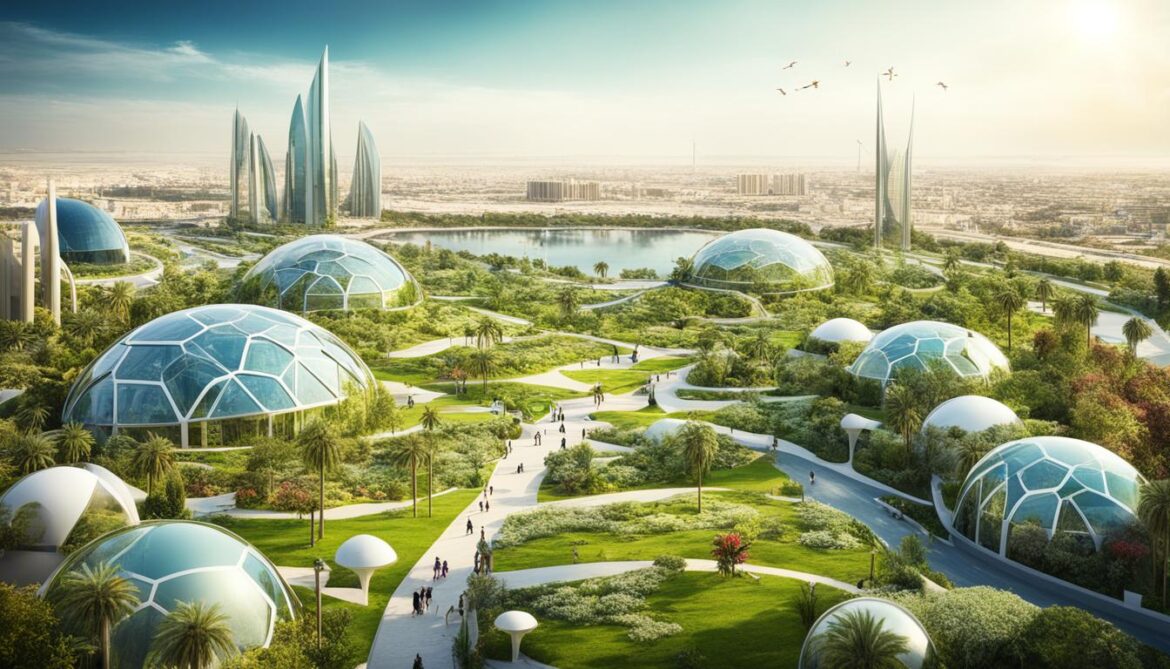
| Goals | Targets |
|---|---|
| Promote sustainable development | 1. Integrate biodiversity into national planning and strategies |
| Protect ecosystems and habitats | 2. Protect and restore ecosystems and essential services |
| Combat climate change | 3. Increase efforts to reduce greenhouse gas emissions |
| Promote sustainable use of biodiversity | 4. Ensure sustainable harvesting and trade of species |
| Enhance biodiversity benefits for all | 5. Promote equitable sharing of benefits from genetic resources |
Bahrain’s commitment to these goals and targets demonstrates its dedication to the conservation of biodiversity and the promotion of sustainable development. By actively participating in the implementation of the CBD, Bahrain plays a crucial role in safeguarding the planet’s natural heritage and ensuring a sustainable future for all.
Conclusion
Bahrain’s rich biodiversity is a testament to the country’s commitment to conservation and sustainable development. Efforts to protect endangered species, preserve valuable habitats, and promote green building practices highlight Bahrain’s dedication to preserving its natural heritage. By implementing the National Biodiversity Strategy and Action Plan, Bahrain is taking significant steps towards protecting its unique animal and plant species for future generations. The conservation of Bahrain’s biodiversity is essential for ecological sustainability and the well-being of its people.




